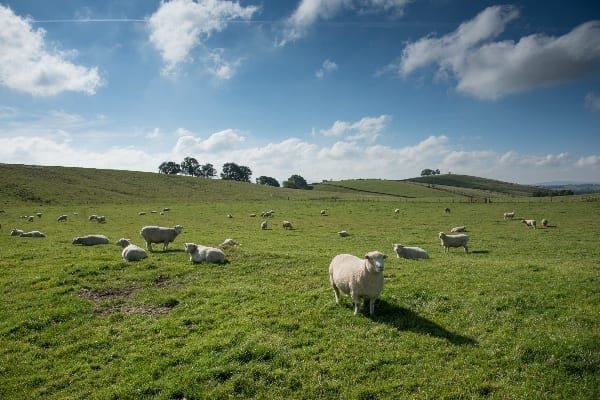This article first appeared in our Restoration Revolution issue of MyGreenPod Magazine, distributed with The Guardian on 06 Sept 2019. Click here to subscribe to our digital edition and get each issue delivered straight to your inbox
Trouble sleeping? There are many possible explanations – from bacteria, dust mites and allergens to toxic chemicals, overheating and even animal welfare concerns.
Hollow fibre and microfibre duvets are made from polyester, a synthetic material derived from petroleum. The toxic chemicals used to create polyester pollute the environment and remain in the fabric that covers you in bed.
Down is a natural, longer lasting alternative that’s also an effective insulator, but these duvets bring animal welfare concerns: the feathers used are in some cases plucked from ducks and geese while they are still alive.
Scientific studies have shown that sleeping with wool bedding increases regenerative sleep by 25% when compared with other bedding types – and when the wool’s organic, you can rest your mind over animal welfare, too.
Organic certification ensures sheep are reared, fed, sheltered and transported with consideration for their wellbeing; cruel practices are prohibited and animal stress is minimised.
Textiles from the Pennines
Shaun and Julie Daniel, founders of Luna Textiles, have been manufacturing and developing beautiful organic wool bedding in the UK since 2002. All the wool in their Natural Comfort GOTS-certified organic products is sourced from British Wool, which in turn is supplied by organically certified British farms.
The mill is situated high in the Pennines on the border between Yorkshire and Lancashire: two counties with a long history of producing some of the finest fabrics and textiles in the world.
‘The reason so many mills were situated in this area is to do with the weather conditions’, Shaun explains. ‘All natural fibres are processed through the textile machines to a higher quality if the atmospheric conditions are damp. The Pennines frequently benefit from this type of weather.’
How sheep get it right
Wool fibres are hygroscopic, which means they absorb moisture. They can, in fact, absorb more than 30% of their weight without feeling wet or damp – which is great news for sheep grazing on the damp Pennines. It’s also good news for anyone looking for a good night’s sleep.
When wool absorbs moisture from humid air, a phenomenon called ‘heat of sorption’ means it also gets warmer. Conversely, when wool loses moisture by desorption in low humidity it becomes cooler. ‘This can reduce the effect of sudden changes in night-time temperature’, Julie says, ‘and it greatly enhances insulation and comfort.’
If wool absorbs 35% of the water vapour in a humid atmosphere, such as your bed when you’re sleeping, it quickly produces as much heat as you’d get from around eight hours with an electric blanket. When the reverse occurs and wool loses moisture in a dry atmosphere (by desorption), it will cause an equivalent cooling effect.
‘A wool duvet works in harmony with the human body as it enters the different phases of sleep, in all climates and at all temperatures’, Shaun explains. ‘It achieves this through the naturally occurring insulating and cooling effect of wool. There’s no other known fill type for duvets that can do this as efficiently as wool can.’
The natural properties of wool could also put an end to bed-sharing frustrations. Much as you may love your partner, you probably don’t want to sleep at the exact same temperature; it’s not uncommon to spend half the night kicking off the duvet, only to wake up re-covered and in a sweat.
‘We are regularly asked if a wool duvet would benefit sleeping partners who prefer warmer or cooler duvets’, Julie says. ‘The answer is yes: the wool will react to the individual’s body temperature and not affect the person next to them. As an example, ladies at that certain stage of life where temperature fluctuation is an issue could benefit from using a Natural Comfort duvet.’
 Play Video about This Rock Might Just Save The World
Play Video about This Rock Might Just Save The World Play Video about Play 2 hours of rock
Play Video about Play 2 hours of rock Play Video about Play 2 hours of brook
Play Video about Play 2 hours of brook Play Video about Play 2 hours of sheep
Play Video about Play 2 hours of sheep











































